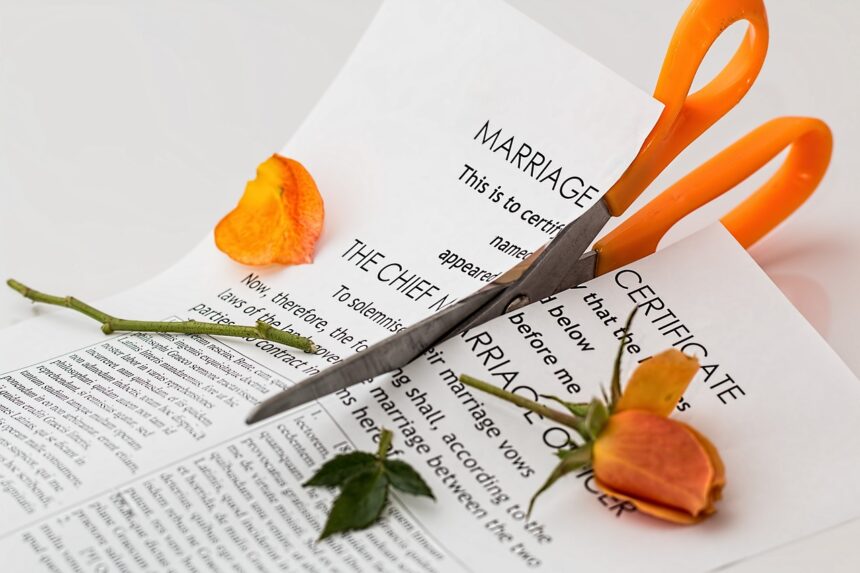Divorce can be a daunting prospect, often laden with emotional turmoil and legal complexities. In moments of desperation, some individuals might entertain the idea of creating fake divorce papers as a shortcut out of their difficult situation. However, this seemingly quick fix can lead to terrible consequences, both legally and ethically. Here’s a comprehensive look at why engaging in such deceitful practices is not only ill-advised but also fraught with risks.
Understanding Fake Divorce Papers
At its core, fake divorce papers are fabricated documents that falsely declare a couple’s legal separation. These papers may be crafted to bypass the legal process of divorce, secure financial benefits, or gaining advantage in child custody disputes. The allure of avoiding lengthy legal proceedings can be strong, but the final results of such actions can be severe.
The Legal Risks Involved
Using fake divorce papers constitutes a serious breach of the law. Courts treat divorce proceedings with utmost seriousness due to their implications on individuals’ legal rights and responsibilities. When people make fake documents, they hurt the fairness of the legal system. They might also get charged with crimes like fraud or lying under oath. Moreover, any financial or sole custodial benefits obtained through fraudulent means can be revoked. Legal consequences can also extend to civil lawsuits and damage to personal reputation.
Long-Term Consequences
The outcome of using fake divorce papers is significant and reaches beyond just facing legal penalties. Here are some of the main consequences:
- Loss of Trust and Relationships: Using fake divorce papers can, consequently, lead to a loss of trust from family, friends, and colleagues. Moreover, people may feel betrayed or deceived, potentially damaging relationships irreparably.
- Legal Instability: Decisions based on fraudulent documents are inherently unstable and can be overturned by the court. Consequently, this instability often leads to long legal battles, adding stress and uncertainty to a difficult situation.
- Emotional Distress: The emotional toll can be severe for all parties involved, especially children. Deceptive actions in a divorce can cause emotional distress; consequently, it may lead to confusion and instability in children’s lives, significantly impacting their well-being.
- Professional Consequences: Beyond personal relationships, fake divorce papers can have significant professional repercussions. Furthermore, it may damage one’s reputation and credibility in professional circles, affecting career prospects and opportunities.
- Financial Repercussions: Fraudulent actions can result in financial penalties. Moreover, they may lead to repayment of improperly gained benefits or even loss of financial support or assets obtained through deceit.
These consequences highlight the far-reaching impact of resorting to fake divorce papers, underscoring the importance of honesty and integrity in legal matters.
The Process of Creating Fake Divorce Papers
Crafting fake divorce papers involves more than just faking signatures and seals. Additionally, it is a deliberate act of deception that breaks the law and compromises integrity. Moreover, the ethical implications are serious, as forging documents undermines justice and fairness.
Here is a step-by-step guide to this illegal process:
1. Research and Planning
- Understanding Legal Documents: Learn what real divorce papers look like, including the necessary sections and legal terms. Study genuine documents to identify their structure and content.
- Gathering Information: Collect accurate personal details about the people involved, such as names, addresses, birthdates, marriage details, and the terms of the divorce (like asset division and custody).
2. Drafting the Document
- Template Creation: Firstly, craft a template that mirrors authentic divorce papers. Utilize word processing or design software to replicate fonts, headers, and official formatting.
- Content Insertion: Populate the template with gathered information, ensuring all sections appear genuine. Incorporate fabricated court names, case numbers, and dates that align with the desired timeline.
3. Fabricating Signatures and Seals
- Signature Forgery: Replicate the signatures of the individuals involved and the judge or legal official. Practice until the signatures look real.
- Seal and Stamp Reproduction: Create digital copies or physical stamps that match the official seals used by the court.
4. Printing and Paper Selection
- Paper Quality: Choose the right type of paper that looks and feels like official documents. Legal papers often use specific types and weights of paper.
- High-Quality Printing: Use a high-quality printer to make the document look professionally printed, with clear text and images.
5. Document Assembly and Presentation
- Final Assembly: Put the document together, ensuring all pages are in the correct order and look flawless.
- Envelope and Delivery: Place the document in an official-looking envelope. You may need to create fake postmarks and mailing labels to make it look legitimate.
6. Ethical and Legal Implications
- Legal Violations: Creating fake divorce papers is illegal and is considered fraud. It can lead to serious legal consequences, including fines and jail time.
- Ethical Considerations: Forging documents undermines trust in the legal system, can cause emotional and financial harm, and damages the forger’s personal integrity.
7. Potential Consequences
- Detection and Prosecution: If discovered, the forgery can result in criminal charges, lawsuits, and damage to reputation.
- Impact on Victims: The people targeted by the fake documents may face distress, legal battles to correct the false records, and potential loss of rights or assets.
Conclusion: Why Legal and Ethical Paths Matter
In conclusion, while the hope of creating fake divorce papers may seem appealing in moments of distress, the risks far outweigh any perceived benefits. Engaging in such dishonest actions brings serious legal consequences. It harms the trust and fairness that legal systems rely on. It’s crucial to handle divorce proceedings through proper channels, respecting everyone’s rights and following ethical standards.
Choosing the legal and ethical path ensures compliance with the law and fosters integrity and accountability. By confronting the challenges of divorce with honesty and integrity, individuals can safeguard their legal standing, preserve relationships, and pave the way for a more stable and secure future. Remember, honesty remains the best policy, especially when navigating the complexities of divorce and its aftereffects.
For more relevant information and legal assistance regarding divorce proceedings, visit Smart Divorce Network. You will find relevant articles and resources to help you navigate divorce with integrity and clarity. You can also access the information through their official Facebook page.

Smart Divorce Network is a blogger-based community that gives divorce professionals a unique platform to share insights and knowledge. Smart Divorce Network is the leading destination for smart divorce discussions between peers. You can share your thought and/or your articles here.





